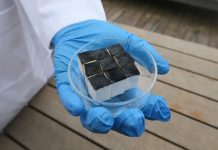
A pioneering study conducted by the Walter and Eliza Hall Institute (WEHI) has introduced fully automated diagnostic methods, featuring liquid handling robots, that hold the potential to improve the lives of millions worldwide who are afflicted with inflammatory diseases.
The research focuses on necroptosis, a critical factor in inflammatory diseases such as psoriasis, arthritis, and inflammatory bowel disease, WEHI said in a news release.
According to the institute, necroptosis is a natural cell death process that removes unwanted or dangerous cells. When this process malfunctions, it can trigger various diseases.
The WEHI researchers have developed automated techniques to detect necroptosis, potentially leading to better diagnosis and personalised treatments for multiple inflammatory conditions.
Identifying the cell death ‘culprit’
Necroptosis, associated with inflammation, has long been suspected of driving many debilitating diseases affecting the gut, skin, and lungs. However, pinpointing necroptosis in real-life scenarios has been challenging.
Dr Andre Samson, co-leader of the study, highlighted the significance of these findings, noting their ability to detect necroptosis in patients with ulcerative colitis or Crohn’s disease. The study also revealed necroptosis’s response to inflammation, bacterial changes, or immune issues.
Dr Samson remarked, “This is a major leap forward in our journey to eventually delivering new medicines that can treat a long list of inflammatory diseases by stopping necroptosis.”
A collaborative effort with cutting-edge technology
The study’s success involved optimising over 300 experimental conditions to develop reliable robotic methods.
Professor James Murphy, co-leader of the study and head of WEHI’s Inflammation division, credited the breakthrough to decades of cell death research, advanced technology, and a talented global team.
The team included PhD students, multiple WEHI departments, and collaborators from the Royal Melbourne Hospital and Cornell University.
Creating a lifesaving atlas for the future
This research offers new insights into cell death mechanisms and their link to inflammatory diseases. The team refers to their work as an “atlas of necroptosis,” providing a precise map of cells capable of undergoing necroptosis.
Prof Murphy emphasised the study’s collaborative nature and its goal to create methods easily replicable in laboratory and clinical settings.
Researchers and clinicians worldwide can now utilise these new methods, with liquid handling robots for immunostaining common in hospitals and pathology departments. The next phase will use these robotic methods to explore which diseases might benefit from necroptosis-blocking medicines.
The study, “An immunohistochemical atlas of necroptotic pathway expression,” is published in EMBO Molecular Medicine.
The research was supported by the National Health and Medical Research Council, the Kenneth Rainin Foundation, Anaxis Pharma, and in collaboration with the Royal Melbourne Hospital and Cornell University.




















